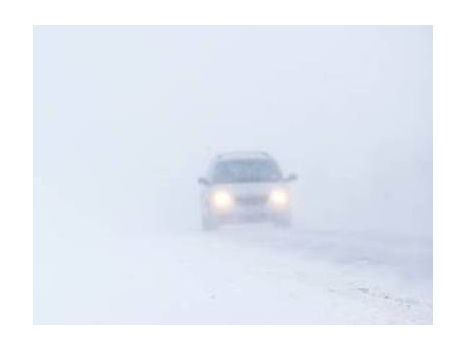Podcasters Think Hollywood’s Strike Could Open Door To Audio For Some.
- Inside Audio Marketing

- Aug 28, 2023
- 3 min read

As the Hollywood strike drags on for another week, the appeal of a creative outlet like podcasting – which has mostly not been impacted by the shutdown – could be growing for creatives looking for an outlet. Some podcasters think that could create an opening for the audio format.
“We need more talent,” says Tom Webster, a Partner at Sounds Profitable. “We do a lot of great unscripted content, but I think in the scripted content space, this could end up being an incredible opportunity for podcasting, just to get a real influx of more talent and more creativity,” he said Thursday during a webinar produced by LinkedIn.
Ashley Ray, host of the TV, I Say podcast, says the strike has also helped opened up viewers eyes to the disconnect between the studios and the writers and actors who make the programs they love.
“I think that is turning people sort of against the studios,” says Ray, who says talent like actress June Diane Raphael is finding success co-hosting Earwolf’s How Did This Get Made? series. “Now they have a greater understanding and transparency of how this system works, I think we're going to see audiences start to navigate more towards that, because it is more realistic,” Ray predicted.
Under SAG-AFTRA strike rules, union members are not allowed to appear on podcast episodes to promote their work under the television and theatrical contract on which they are striking. Otherwise, they are free to appear on other podcasts.
During the live stream, Webster also previewed new research his firm will release next week that examines why some people have yet to become podcast listeners. It finds 34% of non-listeners are persuadable. “They’re aware of podcasts, they think podcasters are smart, capable and good. They just haven’t been made aware of content that they would like,” he said. That is different than the other non-listeners who either don’t like spoken-word content, and those that Webster calls “the unreachables” who do not have good enough mobile data plans or broadband at home. “There are economic reasons for it,” he said.
Bringing in new talent like Ray, a television writer who also writes about TV for Vulture, Variety and Emmy Magazine, is one way that that podcasting can pull those persuadable consumers across the line into becoming podcast listeners. Ray says audio also has plenty to offer creators that video formats cannot.
“As much as I love television, when it comes to driving or doing my dishes, it's very difficult to put a TV show on. But I love to listen to podcasts. I like to listen to people who feel like friends, giving me recommendations or making me laugh,” Ray said. The potential of audio became apparent to Ray when she worked at The Onion and on the development of several comedy podcasts. “That was really what drove me to want to get into podcasting. I loved that I could go on a 20-minute rant on my show about something as niche as ‘Hoarders’ or, whatever other reality show I was watching and find people who could really connect,” she said. “I thought about doing sort of a YouTube show, but it just felt so much more isolated.”
A study released in March by Signal Hill Insights and Sounds Profitable showed podcast audiences are not only more receptive to ads compared to the other two media, but when brands place their ads on podcasts, they are increasingly reaching audiences that broadcast radio and TV are not touching. That is even more the case with younger listeners, the research shows.
Webster says that is because both radio and TV are generally more focused on reaching audiences age 30 or older, saying that when it comes to Gen Z they have “left them behind.” But he also thinks the appeal of podcasts to younger demos goes deeper. “It’s about companionship,” he said. “It also gives them convenience, gives them control, and it gives them the kind of content that they're not getting anywhere else.”
Ray also sees an important connection between comedy and podcasting since laughter can help the medium develop a strong fan base as it allows listeners to let podcasts and hosts into their lives in a more intimate way. “When you can connect with someone and make them laugh, especially about a TV show, which we do a lot on our show, it takes it to a personal level where they relate to you, they want to listen to your recommendations,” she said.
Ray said that a lot of hosts also need to be less afraid to push back against a live-read ad, saying that too many brands expect hosts to simply read ad copy word for word. “If we do something in our voice that works best for our audience, that's a really organic feeling,” she said.




Comments